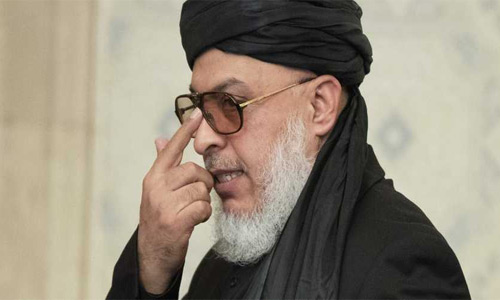There are numerous actors involved in the current Afghan conflict while each one seeks their interests at three levels (global, regional and domestic). The United States and the Taliban are among the most important actors in the conflict while one at the international level and other at the domestic level seeking to fulfill their own demands. The US and the Taliban have apparently come to an agreement and may signed a formal agreement in the next few days, but the major problem is differences between Taliban and other actors such as Pakistan, Iran, Russia, the European Union, china, Saudi Arabia, Turkey and importantly people and government of Afghanistan.
Given the Taliban political position, the withdrawal of US troops from Afghanistan is glorious successes that legitimize the Taliban eighteen-year destruction and violence. After collapse of Taliban in 2001, the United States tried to create a political system due to some shortcomings in nation-building process in Afghanistan and also larger events happened in the world, the United States did not achieve its goals as it had outlined earlier. Now, what justifies the US withdrawal from Afghanistan is the international demands and the ruling idea in White House rather than the pressures of the Taliban and other armed fundamentalists. Even during Obama’s presidency, the United States got to know that its involvement in Afghanistan and Iraq had sidelined US attention from some of the crucial issues while China and Russia were taking advantage of the opportunity.
Obama has repeatedly acknowledged that the United States is undertaking costly expenses in the fight against terrorism while China is developing and modernizing. According to realistic theories, this is not in interests of The United States because the more China and Russia are increasing their power, the less powerful America will become.
The US strategists argue that the United States must minimize its involvement in the Middle East and also confrontation with political Islam in order to prevent the emerging China. Because of this, the US withdrawal from Afghanistan cannot help a permanent peace process in Afghanistan, especially in the short run. On the other hand, the Taliban’s dogmatism in intra-Afghan talks requires them not to give up their basic demands which legitimize their identity. The most important differences between the Taliban and other actors can be summarized in two main categories:
First category is type of Political System and interpretation from religion: The Taliban, like other radical Islamists, is seeking to establish a religious-political system on basis of Sharia law. Although other internal actors are not trying to eliminate Islam from the country, the main differences are the types of interpretation between the two groups. The Taliban are intellectually close to the Deobandis which is very similar to the Salafists in the Arab world in terms of political view and government. Therefore, the Taliban’s extreme interpretation from Islam undermines coexistence in Afghanistan’s multi-ethnic community. Afghanistan is an Islamic country but there are different religious groups such as Sunni Hanafi, Sunni Sufi, twelve Imam shia, Ismaili shia. In addition, there are some non-Muslim people such as Sikhs, Hindus and Christian that are worried about return of Talibanism in Afghanistan. The majority of the Afghan people are in favor of republicanism and democratic political order while the Taliban disagree with democracy. Given Afghanistan’s multi-ethnicity, political participation and access to national resources have always been one of the most challenging issues in Afghanistan. According to Taliban worldview, all social and cultural groups do not have equal rights. Whatever the Taliban provide is correct and the rest must accept or leave the country.
Second category is the Mechanisms for transition of Political Power; in the contemporary era, there are two methods in transition of power: democracy and authoritarianism. Although the type of political system seems different in democracies, what forms the nature of system is that the sovereignty belongs to citizens. The second method is authoritarianism which itself divided into several types but religious authoritarianism is the one which is chosen by Taliban.
In fact, the Taliban are trying to reestablish the Islamic Emirate in Afghanistan, but the majorities of the people have a very bitter memory from the Islamic Emirate in the nineties and do not want to experience it again. Since republicanism and the Emirate are not combinable, reaching an agreement between the two groups of actors in the intra-Afghan negotiation would be very difficult. In addition to these differences, Taliban have a kind of monopolistic view to Afghanistan and think that they are the real owner of this country giving no rights to the rest. This kind of racial-ethnic supremacy when combined with religious supremacy can lead to an inflexible system against the will of the majority of citizens. Therefore, the differences in intra-Afghan talks would be deeper than the differences between the US and the Taliban, and so it could take longer time or even face stalemate.
Home » Opinion » Taliban’s Monopolistic View Main Obstacle To Intra-Afghan Talks
Taliban’s Monopolistic View Main Obstacle To Intra-Afghan Talks
| Mohammad Zahir Akbari

